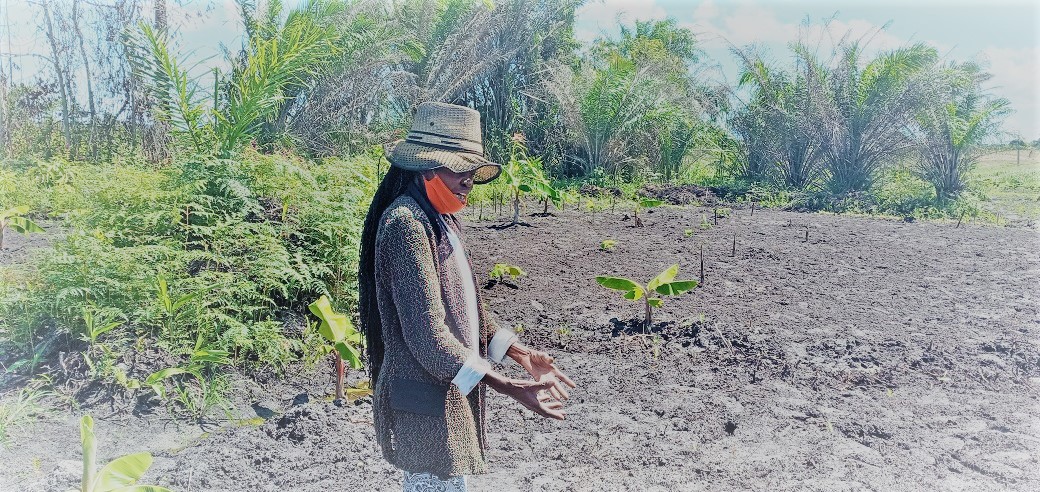Carbon sinks in Colombia
Case Study
An example of a carbon sink is the PROCUENCA project in Colombia.
PROCUENCA is a forestry project first established in 2001 that is formally aimed at regulating and improving the quantity and quality of fresh water by restoring the Chinchiná River watershed. These areas have been threatened by uncontrolled deforestation and the extension of the agricultural and cattle frontier over the course of the last century.
Project activities include the establishment of forest plantations, agroforestry, sylvopastoral systems and assisted natural regeneration, and projects to prevent erosion.
PROCUENCA also has other environmental, productive and social objectives. For example, significant increases in timber production were always intended. The project also aims to increase local biodiversity and improve the connectivity of strategic ecosystems.
Additionally, PROCUENCA is supposed to strengthen both human and social capital, foster environmental awareness and encourage local people to get involved in activities to improve the quality of life locally.
PROCUENCA is partially funded through Certificates for Forest Incentives (CIFs), a national financial mechanism specifically intended to support landowners establishing plantations, by providing subsidies to assist with the cost of establishing and maintaining them.
Since the plantations are also expected to sequester a certain amount of carbon, financing from the Clean Development Mechanism (CDM) has also been requested. The regulatory carbon market currently seems to be at an impasse, however, with nearly 2,000 CDM greenhouse gas reduction projects reportedly facing a wait of more than two years to acquire accreditation. As a result PROCUENCA, seeking some kind of compensation through the markets, is selling credits on the voluntary markets.
Colombian NGO CENSAT Agua Viva found that although the project is appreciated in the region it does have some significant negative impacts on local communities and their sovereignty over local biodiversity.
For example, a majority of the landowners questioned reported that they were not able to choose what species to plant or how to manage their plantations. There were also bitter complaints from the community about forests that were regenerating being classified as ‘stubble’ so that they could be logged and replaced with plantations.
Because of these concerns, and because of attempts to establish plantations in protected areas as part of the PROCUENCA project, the local authority of Villamaría eventually decided not to participate in any more direct reforestation activities involving PROCUENCA (although it does sometimes participate in other project activities).
CENSAT also found that the use of CIFs – Forestry Incentives Certificates – has created financial difficulties for participants, especially for the smaller landowners that chose to participate in the project and applied for a CIF.
This is because the landowners participating in PROCUENCA are contractually obliged by the project to channel the funds straight to the project to cover some of the debts incurred. This leaves the landowners with a wait of up to 20 years for returns on their new plantations, and a reduced area or no land on which to grow coffee or potatoes or raise cattle to sell (as many had previously). They also have less no land to produce food for their families.
The PROCUENCA project also lacks any focus on gender in its design and implementation, ignoring the fundamental role of women and their contribution to the improvement of living conditions in households, communities and regions.
In conclusion, PROCUENCA, designed in part to capture carbon, has been developed by felling naturally regenerating forests to make way for commercial plantations. It thus fails to achieve its environmental objectives, and clearly demonstrates how this particular market-based approach can be an inefficient means of conserving biodiversity.
Furthermore, it reduces people’s autonomy over their lands, both in terms of what species are planted, how plantations are managed, and whether there are reasonable financial returns generated by the project’s activities.
PROCUENCA is founded on an unequal relationship. One of the reasons for this is the fact that local participants lack political and economic power and are unable to incorporate environmental costs into the price of the goods and services they are selling. This in turn erodes sovereignty and local self-determination, as those costs are borne by local communities and the environment.
This is exacerbated by the lack of accurate and comprehensive information that might enable communities to participate meaningfully in decision-making.
The case study also demonstrated that projects that were never intended as carbon sinks projects are still able to apply to and qualify for funding from the Clean Development Mechanism.
Please refer to Life as Commerce: how market-based conservation impact on community governance for summary case study and further details, or the full report Carbon sinks in Colombia . (only available in Spanish)







